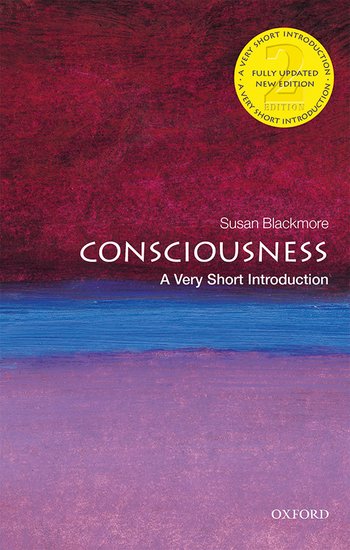Home >
A Very Short Introduction >
Consciousness (2nd edition) (Philosophy)
A Very Short Introduction | Philosophy
Consciousness (2nd edition)
ISBN: 9780198794738
Series: A Very Short Introduction
Consciousness (2nd edition) (Philosophy)
A Very Short Introduction Consciousness (2nd edition) (Philosophy) Media > Books > Non-Fiction > Education Books Expect Delays of Up to 4 Weeks| Order Below |
ISBN
9780198794738 (10-digit ISBN: 0198794738)
- Description
- Key Features
- Series Description
- Table of Contents
- A lively and authoritative introduction to the hot topic of consciousness
- A much-needed launch pad for the further exploration of this complicated, controversial, and unresolved issue
- Challenges readers to reconsider key concepts such as personality, free will, and the soul
- Combines the perspectives of philosophy, psychology, and neuroscience on the subject of consciousness
- Considers new research in key areas such as the physiology of altered states of consciousness, and the construction of self in the brain
Consciousness, 'the last great mystery for science', remains a hot topic. How can a physical brain create our experience of the world? What creates our identity? Do we really have free will? Could consciousness itself be an illusion?
Exciting new developments in brain science are continuing the debates on these issues, and the field has now expanded to include biologists, neuroscientists, psychologists, and philosophers. This controversial book clarifies the potentially confusing arguments, and the major theories, whilst also outlining the amazing pace of discoveries in neuroscience. Covering areas such as the construction of self in the brain, mechanisms of attention, the neural correlates of consciousness, and the physiology of altered states of consciousness, Susan Blackmore highlights our latest findings.
Oxford's Very Short Introductions series offers concise and original introductions to a wide range of subjects--from Islam to Sociology, Politics to Classics, Literary Theory to History, and Archaeology to the Bible.
Not simply a textbook of definitions, each volume in this series provides trenchant and provocative--yet always balanced and complete--discussions of the central issues in a given discipline or field. Every Very Short Introduction gives a readable evolution of the subject in question, demonstrating how the subject has developed and how it has influenced society. Eventually, the series will encompass every major academic discipline, offering all students an accessible and abundant reference library.
Whatever the area of study that one deems important or appealing, whatever the topic that fascinates the general reader, the Very Short Introductions series has a handy and affordable guide that will likely prove indispensable.
Please note: As this series is not ELT material, these titles are not subject to discount.
1: Why the mystery?
2: The human brain
3: Time and space
4: A grand illusion
5: The self
6: Conscious will
7: Altered states of consciousness
8: The evolution of consciousness
References
Further Reading
Index
Consciousness, 'the last great mystery for science', remains a hot topic. How can a physical brain create our experience of the world? What creates our identity? Do we really have free will? Could consciousness itself be an illusion?
Exciting new developments in brain science are continuing the debates on these issues, and the field has now expanded to include biologists, neuroscientists, psychologists, and philosophers. This controversial book clarifies the potentially confusing arguments, and the major theories, whilst also outlining the amazing pace of discoveries in neuroscience. Covering areas such as the construction of self in the brain, mechanisms of attention, the neural correlates of consciousness, and the physiology of altered states of consciousness, Susan Blackmore highlights our latest findings.
Key Features
- A lively and authoritative introduction to the hot topic of consciousness
- A much-needed launch pad for the further exploration of this complicated, controversial, and unresolved issue
- Challenges readers to reconsider key concepts such as personality, free will, and the soul
- Combines the perspectives of philosophy, psychology, and neuroscience on the subject of consciousness
- Considers new research in key areas such as the physiology of altered states of consciousness, and the construction of self in the brain
Series Description
Oxford's Very Short Introductions series offers concise and original introductions to a wide range of subjects--from Islam to Sociology, Politics to Classics, Literary Theory to History, and Archaeology to the Bible.
Not simply a textbook of definitions, each volume in this series provides trenchant and provocative--yet always balanced and complete--discussions of the central issues in a given discipline or field. Every Very Short Introduction gives a readable evolution of the subject in question, demonstrating how the subject has developed and how it has influenced society. Eventually, the series will encompass every major academic discipline, offering all students an accessible and abundant reference library.
Whatever the area of study that one deems important or appealing, whatever the topic that fascinates the general reader, the Very Short Introductions series has a handy and affordable guide that will likely prove indispensable.
Please note: As this series is not ELT material, these titles are not subject to discount.
EASY ORDER FORM
PRICES LISTED INCLUDE CONSUMPTION TAX
Price Before Tax:
¥1,790


